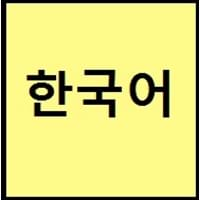Cebuano vs Korean
- About one-fifth of the population of the philippines speak cebuano and are second largest ethnolinguistic group in the country.
- Cebuano contains many words of Spanish origin.
- Korean has borrowed words from English and Chinese.
- Korean has two counting systems. First, is based on Chinese characters and numbers are similar to Chinese numbers, and second counting system is from words unique to Korea.
Cebuano and Korean Language History
Comparison of Cebuano vs Korean language history gives us differences between origin of Cebuano and Korean language. History of Cebuano language states that this language originated in 16th century whereas history of Korean language states that this language originated in Before 1st century. Family of the language also forms a part of history of that language. More on language families of these languages can be found out on Cebuano and Korean Language History.
Cebuano and Korean Greetings
People around the world use different languages to interact with each other. Even if we cannot communicate fluently in any language, it will always be beneficial to know about some of the common greetings or phrases from that language. This is where Cebuano and Korean greetings helps you to understand basic phrases in Cebuano and Korean language. Cebuano word for "Hello" is Hoy or Korean word for "Thank You" is 감사합니다 (gamsahabnida). Find more of such common Cebuano Greetings and Korean Greetings. These greetings will help you to be more confident when conversing with natives that speak these languages.
Cebuano vs Korean Difficulty
The Cebuano vs Korean difficulty level basically depends on the number of Cebuano Alphabets and Korean Alphabets. Also the number of vowels and consonants in the language plays an important role in deciding the difficulty level of that language. The important points to be considered when we compare Cebuano and Korean are the origin, speaking countries, language family, different greetings, speaking population of these languages. Want to know in Cebuano and Korean, which language is harder to learn? Time required to learn Cebuano is 3 weeks while to learn Korean time required is 88 weeks.





